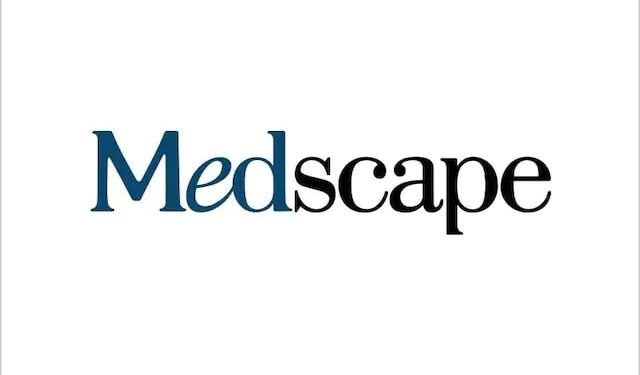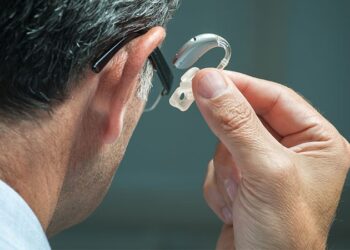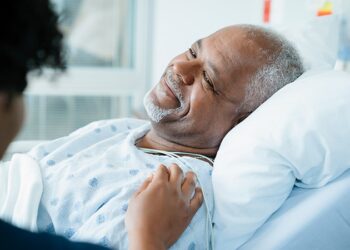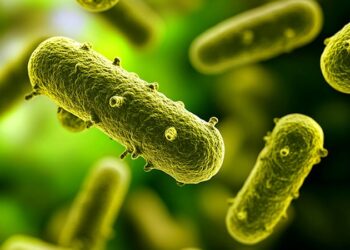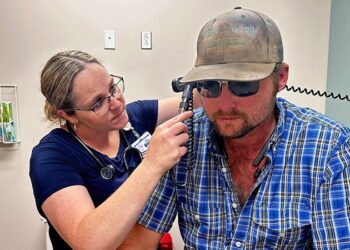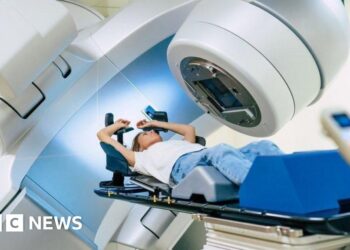WASHINGTON — For years, oncologist Jonathan Peled, MD, PhD, and his colleagues at Memorial Sloan Kettering Cancer Center (MSKCC) in New York City have been documenting gut microbiota disruption during allogeneic hematopoietic stem cell transplantation (allo-HSCT) and its role in frequent and potentially fatal bloodstream infections (BSIs) in the first 100 days after transplant.
Modulating microbiome composition to improve outcomes after allo-HSCT for hematological malignancies is a prime goal, and at the Gut Microbiota for Health (GMFH) World Summit 2025, Peled shared two new findings.
In one study, his team found that sucrose can exacerbate antibiotic-induced microbiome injury in patients undergoing allo-HSCT — a finding that “raises the question of whether our dietary recommendations [for] allo-HSCT patients are correct,” said Peled, assistant attending at MSKCC, during a session on the gut microbiome and oncology.
And in another study, they found that a rationally designed probiotic formulation may help lower the incidence of bacterial BSIs. In December 2024, the probiotic formulation (SER-155, Seres Therapeutics, Inc.) was granted breakthrough therapy designation by the FDA.
With immunotherapies more broadly, researchers are increasingly looking at diet and modulation of the microbiome to improve both treatment tolerance and efficacy, experts said at the meeting convened by the American Gastroenterological Association and the European Society of Neurogastroenterology and Motility.
“Cancer patients and caregivers are asking, ‘What should I eat?’” said Carrie Daniel-MacDougall, PhD, MPH, a nutritional epidemiologist at the University of Texas MD Anderson Cancer Center in Houston. “They’re not just focused on side effects — they want a good outcome for their treatment, and they’re exploring a lot of dietary strategies [for which there] is not a lot of evidence.”
Clinicians are challenged by the fact that “we don’t typically collect dietary data in clinical trials of cancer drugs,” leaving them to extrapolate from evidence-based diet guidelines for cancer prevention, Daniel-MacDougall said.
But “I think that’s starting to shift,” she said, with the microbiome being increasingly recognized for its potential influences on therapeutic response and clinical trials underway looking at “a healthy dietary pattern not just for prevention but survival.”
Diet and Probiotics After allo-HSCT
The patterns of microbiota disruption during allo-HSCT — a procedure that includes antibiotic administration, chemotherapy, and sometimes irradiation — are characterized by loss of diversity and the expansion of potentially pathogenic organisms, most commonly Enterococcus, said Peled.
This has been demonstrated across transplantation centers. In a multicenter, international study published in 2020, the patterns of microbiota disruption and their impact on mortality were similar across MSK and other transplantation centers, with higher diversity of intestinal microbiota associated with lower mortality.
Other studies have shown that Enterococcus domination alone (defined arbitrarily as > 30% of fecal microbial composition) is associated with graft vs host disease and higher mortality after allo-HSCT and that intestinal domination by Proteobacteria coincides temporally with BSIs, he said.
Autologous fecal microbiota transplantation (FMT) has been shown to largely restore the microbiota composition the patient had before antibiotic treatment and allo-HSCT, he said, making fecal sample banking and posttreatment FMT a potential approach for reconstituting the gut microbiome and improving outcomes.
But “lately we’ve been very interested in diet for modulating [harmful] patterns” in the microbiome composition, Peled said.
In the new study suggesting a role for sugar avoidance, published last year as a bioRxiv preprint, Peled and his colleagues collected real-time dietary intake data (40,702 food entries) from 173 patients hospitalized for several weeks for allo-HSCT at MSK and analyzed it alongside longitudinally collected fecal samples. They used a Bayesian mixed-effects model to identify dietary components that may correlate with microbial disruption.
“What jumped out as very predictive of a low diversity fecal sample [and expansion of Enterococcus] in the 2 days prior to collection was the interaction between antibiotics and the consumption of sweets” — foods rich in simple sugars, Peled said. The relationship between sugar and the microbiome occurred only during periods of antibiotic exposure.
“And it was particularly perplexing because the foods that fall into the ‘sweets’ category are foods we encourage people to eat clinically when they’re not feeling well and food intake drops dramatically,” he said. This includes foods like nutritional drinks or shakes, Italian ice, gelatin dessert, and sports drinks.
(In a mouse model of post-antibiotic Enterococcus expansion, Peled and his co-investigators then validated the findings and ruled out the impact of any reductions in fiber.)
In addition to possibly revising dietary recommendations for patients undergoing allo-HSCT, the findings raise the question of whether avoiding sugar intake while on antibiotics, in general, is a way to mitigate antibiotic-induced dysbiosis, he said.
To test the role of probiotics, Peled and colleagues collaborated with Seres Therapeutics on a phase 1b trial of an oral combination (SER-155) of 16 fermented strains “selected rationally,” he said, for their ability to decolonize gut pathogens, improve gut barrier function (in vitro), and reduce gut inflammation and local immune activation.
After a safety lead-in, patients were randomized to receive SER-155 (20) or placebo (14) three times — prior to transplant, upon neutrophil engraftment (with vancomycin “conditioning”), and after transplant. “The strains succeeded in grafting in the [gastrointestinal] GI tract…and some of them persisted all the way through to day 100,” Peled said.
The incidence of pathogen domination was substantially lower in the probiotic recipients compared to an MSK historical control cohort, and the incidence of BSIs was significantly lower compared to the placebo arm (10% vs 43%, respectively, representing a 77% relative risk reduction), he said.
Diet and Immunotherapy Response: Trials at MD Anderson
One of the first trials Daniel-MacDougall launched at MD Anderson on diet and the microbiome randomized 55 patients who were obese and had a history of colorectal cancer or precancerous polyps to add a cup of beans to their usual diet or to continue their usual diet without beans. There was a crossover at 8 weeks in the 16-week BE GONE trial; stool and fasting blood were collected every 4 weeks.
“Beans are a prebiotic super-house in my opinion, and they’re also something this population would avoid,” said Daniel-MacDougall, associate professor in the department of epidemiology at MD Anderson and faculty director of the Bionutrition Research Core and Research Kitchen.
“We saw a modest increase in alpha diversity [in the intervention group] and similar trends with microbiota-derived metabolites” that regressed when patients returned to their usual diet, she said. The researchers also documented decreases in proteomic biomarkers of intestinal and systemic immune and inflammatory response.
The impact of diet on cancer survival was shown in subsequent research, including an observational study published in Science in 2021 of patients with melanoma receiving immune checkpoint blockade (ICB) treatment. “Patients who consumed insufficient dietary fiber at the start of therapy tended to do worse [than those reporting sufficient fiber intake],” with significantly lower progression-free survival, Daniel-MacDougall said.
“And interestingly, when we looked at dietary fiber [with and without] probiotic use, patients who had sufficient fiber but did not take probiotics did the best,” she said. [The probiotics were not endorsed or selected by their physicians.]
Now, the researchers at MD Anderson are moving into “precision nutrition” research, Daniel-MacDougall said, with a phase 2 randomized, double-blind trial of high dietary fiber intake (a target of 50 g/d from whole foods) vs a healthy control diet (20 g/d of fiber) in patients with melanoma receiving ICB.
The study, which is underway, is a fully controlled feeding study, with all meals and snacks provided by MD Anderson and macronutrients controlled. Researchers are collecting blood, stool, and tumor tissue (if available) to answer questions about the microbiome, changes in systemic and tissue immunity, disease response and immunotherapy toxicity, and other issues.
Peled disclosed IP licensing and research support from Seres Therapeutics; consulting with Da Volterra, MaaT Pharma, and CSL Behring; and advisory/equity with Postbiotics + Research LLC and Prodigy Biosciences. Daniel-MacDougall reported having no disclosures.
Source link : https://www.medscape.com/viewarticle/can-modulation-microbiome-improve-cancer-immunotherapy-2025a1000gev?src=rss
Author :
Publish date : 2025-06-19 13:12:00
Copyright for syndicated content belongs to the linked Source.

